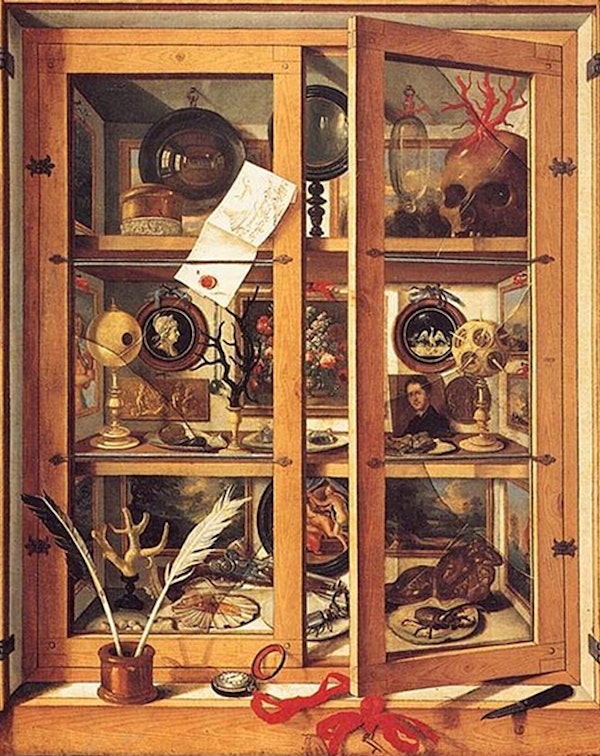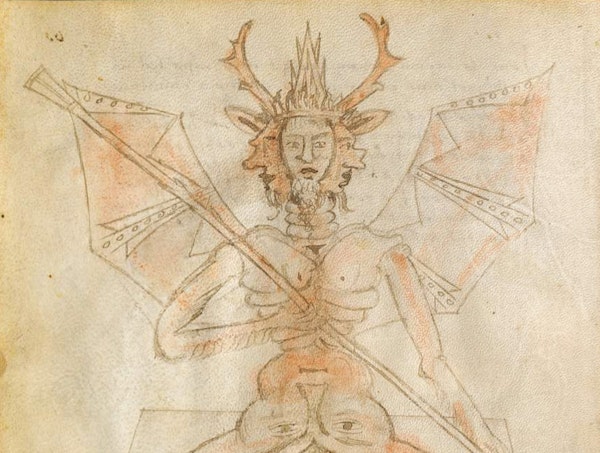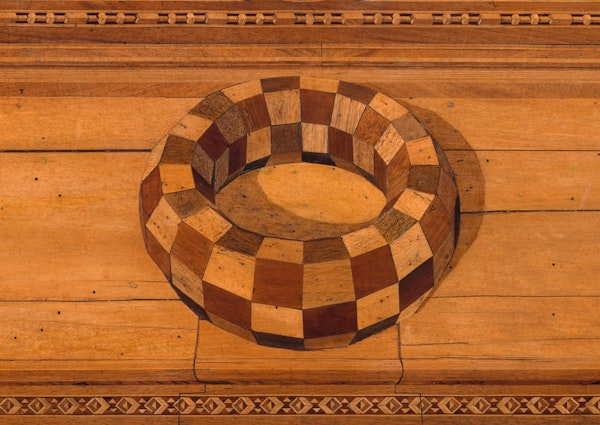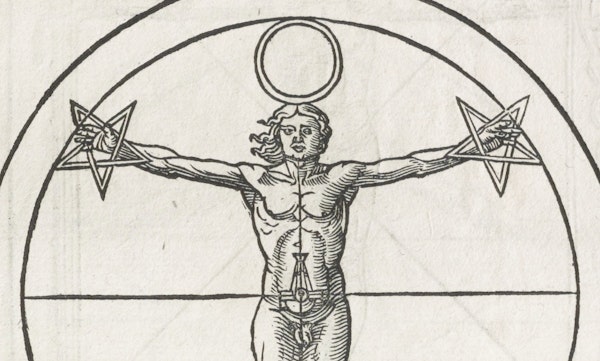
Renaissance

In the latter half of the 17th century the English polymath Thomas Browne wrote Musaeum Clausum, an imagined inventory of 'remarkable books, antiquities, pictures and rarities of several kinds, scarce or never seen by any man now living'. Claire Preston explores Browne's extraordinary catalogue amid the wider context of a Renaissance preoccupation with lost intellectual treasures. more

The Dreams of an Inventor in 1420
Bennett Gilbert peruses the sketchbook of 15th-century engineer Johannes de Fontana, a catalogue of designs for a variety of fantastic and often impossible inventions, including fire-breathing automatons, pulley-powered angels, and the earliest surviving drawing of a magic lantern device. more

Exquisite Rot: Spalted Wood and the Lost Art of Intarsia
The technique of intarsia — the fitting together of pieces of intricately cut wood to make often complex images — has produced some of the most awe-inspiring pieces of Renaissance craftsmanship. Daniel Elkind explores the history of this masterful art, and how an added dash of colour arose from a most unlikely source: lumber ridden with fungus. more

Marked by Stars: Agrippa’s Occult Philosophy
Reading Heinrich Cornelius Agrippa’s encyclopedic study of magic is like stumbling into a vast cabinet of curiosities, where toad bones boil water, witches transmit misery through optical darts, and numbers, arranged correctly, can harness the planets’ powers. Anthony Grafton explores the Renaissance polymath’s occult insights into the structure of the universe, discovering a path that leads both upward and downward: up toward complete knowledge of God, and down into every order of being on earth. more

“Here I Gather All the Friends”: Machiavelli and the Emergence of the Private Study
Reading is a form of necromancy, a way to summon and commune once again with the dead, but in what ersatz temple should such a ritual take place? Andrew Hui tracks the rise of the private study by revisiting the bibliographic imaginations of Machiavelli, Montaigne, and W. E. B. Du Bois, and finds a space where words mediate the world and the self. more

